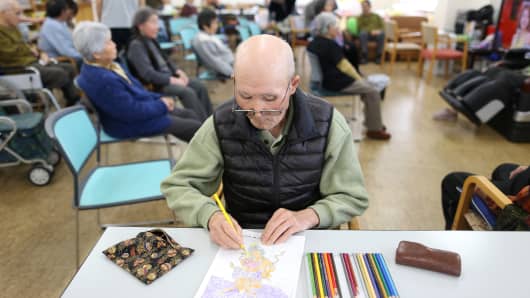Get this: sales of adult diapers are set to overtake sales of baby nappies in Japan by next year, according to Euromonitor, a blunt reflection of how rapidly the world's third-largest economy is aging.
"The social taboo around incontinence [products] has been reduced due to manufacturer campaigns directed at the elderly," said Keita Tamaoki, research analyst at Euromonitor.
"The strong desire for independent lifestyles and maintaining an active routine without dependence on children or relatives will present ample opportunities for manufacturers to support the elderly consumers' lifestyles," said Tamaoki.
(Read more: Reluctance to invest puts 'Abenomics' to test)
In Japan, which is home to the fastest aging society globally, citizens aged 65 and older account for 25.1 percent of the overall population, up from 17.4 percent in 2000. This is more than double that of South Korea and China whose elderly populations currently stand at 12.2 and 11.1 percent of the population, respectively.
Sales of adult diapers in Japan are projected to rise 25 percent between 2012 and 2017, according to Euromonitor, which noted that leading manufacturers such as Unicharm and Daio Paper are ramping up their focus on the segment.





